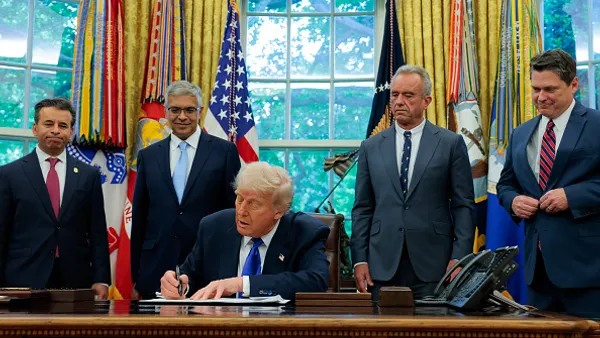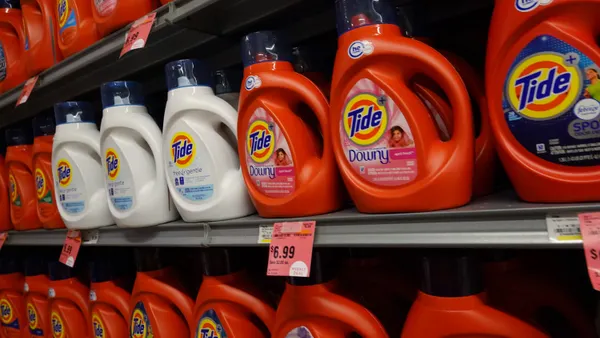Dive Brief:
- KnowTheChain, an organization based out of San Francisco, has released company rankings on popular footwear and apparel makers in order to establish industry benchmarks and reveal what companies are leading the way in eliminating forced labor, Vamp reported last week.
- Adidas, the German sporting apparel company, scored highest, which KnowTheChain attributes to its Modern Day Slavery Supply Chain Evaluation program. This program seeks to remove all exploitation from its supply chain by closely evaluating second-tier suppliers and subcontractors.
- Japan-based Fast Retailing and Baltimore, MD-based Under Armour were among the 5 worst-performing companies in the survey.
Dive Insight:
As we move into the new year, one of the recurring issues that we have been highlighting in the latter part of 2016 continues into 2017. The human rights issue of forced labor, often lying within the second-tier suppliers and subcontractors within the chain, have persisted, which is the primary reason why KnowTheChain exists. Their new benchmark ranking, which highlights the best and worst in how apparel companies are addressing these violations, aims to bring visibility and corporate standards to this longstanding problem.
The forced labor problem, which predominantly derives from goods including cotton, leather, textiles and garments, will often occur away from a watchful eye in countries such as Uzbekistan, Turkmenistan, and China. Given the lack of visibility in these areas, the problem cannot be solved with a single approach, but instead requires a multi-pronged effort to bring about safer conditions for workers. KnowTheChain can highlight those companies based on consistent standards, which include corporate governance, purchasing practices, audit, and how companies remedy violations, but this is only one facet. Since KnowTheChain lacks legal authority, it is incumbent on both the companies and local government agencies to enforce better practices. The public has a role to play as well, as public stance advocacy is beginning to show its effect. Lastly, those who take a leadership position on forced labor eradication are likely to be rewarded in the marketplace, as millennial consumers are showing greater proclivity to change their buying patterns based on supply chain ethics.
The struggle to eradicate forced labor will be a long-term goal for most companies, but with this multi-pronged approach — benchmark standards, corporate governance, local regulations, public advocacy, and consumer choice — the global supply chain will create a global shift away from forced labor violations.












